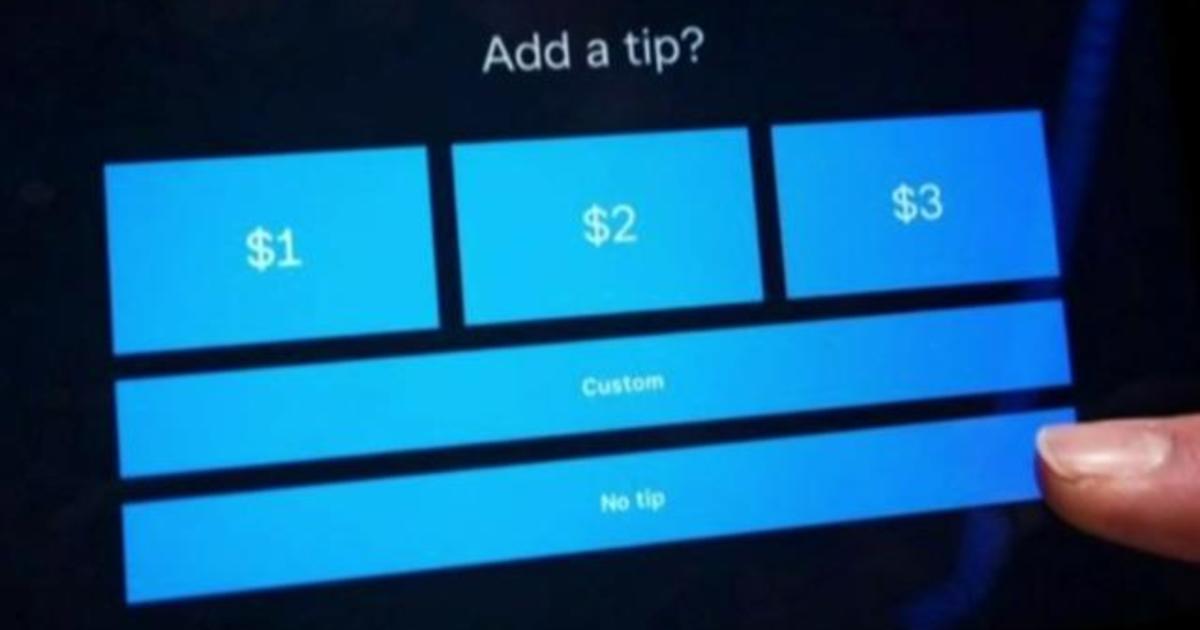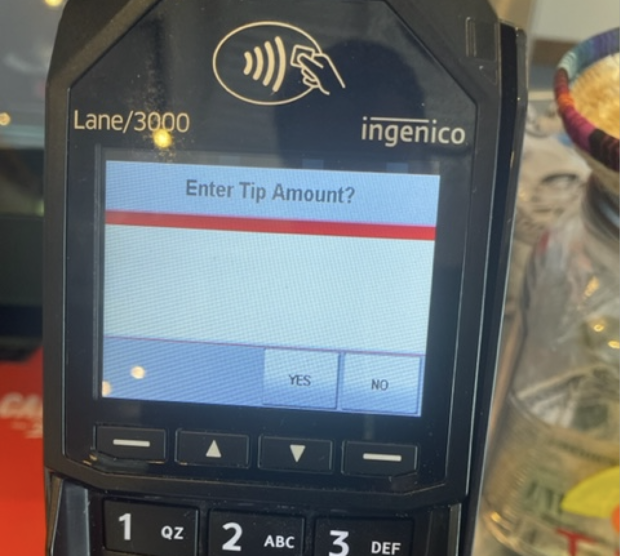How tipping culture has changed with gratuity screens everywhere

Table of Contents
The screens are seemingly everywhere — coffee shops, sports stadiums, online travel sites, even self-service kiosks — asking customers if they want to offer a tip and leaving shoppers confused about when to give.
Historically, tips were designed to reward, and sometimes ensure, good service, and were typically only expected in settings such as restaurants, salons and taxis, where gratuities can factor heavily into a worker’s wages. But digital payment prompts suggesting to leave between 15% and 25% extra on even small purchases that require little or no customer service have become ubiquitous.
What’s clear is business owners are increasingly comfortable asking customers for tips. Taking a dimmer view, some critics view the practice as employers effectively offloading their responsibility to pay employees a living wage onto consumers.
“Tipping has become the customary daily moment, as opposed to a situation like going into a restaurant and being expected to leave a tip,” said Columbia Business School professor Stephen H. Zagor, who focuses on restaurants and food businesses. “Now you could go to a large department store and at checkout there’s a space for a tip.”
Lehigh University professor Holona LeAnne Ochs, author of two books on tipping, describes businesses requesting tips as “constant and pervasive,” while leaving consumers wondering when it’s appropriate to show their appreciation.
Old rules are out
Even experts come down on different sides of the cultural flashpoint, while largely agreeing on one point: The old tipping norms are dead, and there are no longer any hard-and-fast rules around when it’s OK for a business to ask for a tip or for a consumer not to give.
“The nature of tipping is less about rewarding service providers for good service and more about social norms. Social norms have been distorted, so we don’t know when to tip,” Brian Warrener, associate professor of hospitality management at Johnson and Wales University, told CBS MoneyWatch.
He personally is comfortable not tipping when he doesn’t believe it is merited.
“If I haven’t had much of a service interaction or great service, I have no problem not leaving a gratuity. It’s not warranted in this case. You didn’t earn it; you don’t deserve it in this case,” Warrener said.
COVID-19 shattered norms
The pandemic had a major impact on tipping habits. Retail industry employees and other essential workers were seen as putting their own health, and even their lives, on the line to serve customers, more than earning an extra monetary reward.
“Tipping during COVID was like a donation that recognized that frontline service employees were out there doing difficult, dangerous work. And we all appreciated it, so we all contributed a little bit extra to that charity,” Warrener said.
While businesses are carrying that expectation forward, Warrener said it’s acceptable for consumers to revert to their old tipping habits.
“It’s perfectly reasonable to go back to what the norms were previously,” he said. “I don’t feel like I have to leave a 20% tip on top of a cup of coffee at the local Starbucks.”
Josh Luger, co-founder of fast-casual food chain Capital Tacos, has no qualms about asking customers to tip workers at his restaurants. Luger’s restaurants don’t provide table service, so he lists out all the work that goes into preparing a meal in a place that’s visible to customers.
“We run a scratch kitchen and we do a lot of hard work every day to deliver what we think is a unique and superior product,” he told CBS MoneyWatch. “We do a lot in stores to make sure that’s communicated to customers.”
Luger notes that he sees nothing wrong with customers opting not to tack on a gratuity. Yet by the time someone places an order, he hopes that the considerable effort employees put in to deliver good service is clear.
Josh Luger / Capital Tacos
“You’ve read the wall, seen the kitchen and the work that’s being done, and we hope you have the context so we make the ask,” he said. “No tip is required — you can sign the receipt and put nothing on there, but if you want to reward workers we think it’s reasonable to make that ask.”
Tips are distributed among employees, all of whom perform a mix of job functions. In some ways, it helps keep prices down and wages up for workers, Luger said. “What consumers generally want is a lower stated price point and the option to tip if they so choose. As long as it falls short of a requirement, I think everything is fair game.”
“It’s like extortion”
Zagor, the Columbia professor, sees two broad reasons to tip: Either to reward good service or to encourage it in the future.
“If you feel someone is doing something beneficial to you and you have empathy and compassion, tip ’em!” he said.
But when a commercial transaction involves no human interaction, such as buying something online or using an in-store kiosk or app, Zagor thinks tip prompts are inappropriate.
“It’s like extortion. It’s suggesting adding a charge on where you don’t see where the charge is for or what its value is,” he said.
Zagor’s own approach to tipping is straightforward. He’s generally inclined to tip people who provide services — not businesses or machines selling goods.
“I’m not going to tip a store I’m buying canned goods or ketchup from, but if someone provides service to me I always feel there’s a reward for that level of concern or energy they put out,” he explained.
Get over it, already
Technology has played a large role in changing the rules around tipping. Touch screens with tip prompts are increasingly replacing old-fashioned tip jars, which were easier to slip past and ignore. And on a screen, you have to actively reject the request.
“With a tip jar, you can simply ignore it if you don’t put money in,” said tipping expert William Michael Lynn, a professor of services marketing at the Cornell University School of Hotel Administration. “On a tablet you have to actively hit ‘no tip’ — so that’s a sin of commission, and we feel worse about that.”
Lynn said there’s no right or wrong answer on when to either ask for or give a tip. Businesses can ask for gratuities, but shouldn’t expect customers to show their generosity or express ill will if they don’t. And customers should tip in line with their own values and motivation.
As for consumers who may feel a twinge of guilt when they skip past the tip screen, Lynn has another modest piece of advice: Just deal with it.
“They want you to give them money, there’s no question, and they will be at the very least disappointed if you don’t, but who cares?” he said. “Lots of people want money from me and I don’t give it to them.”








